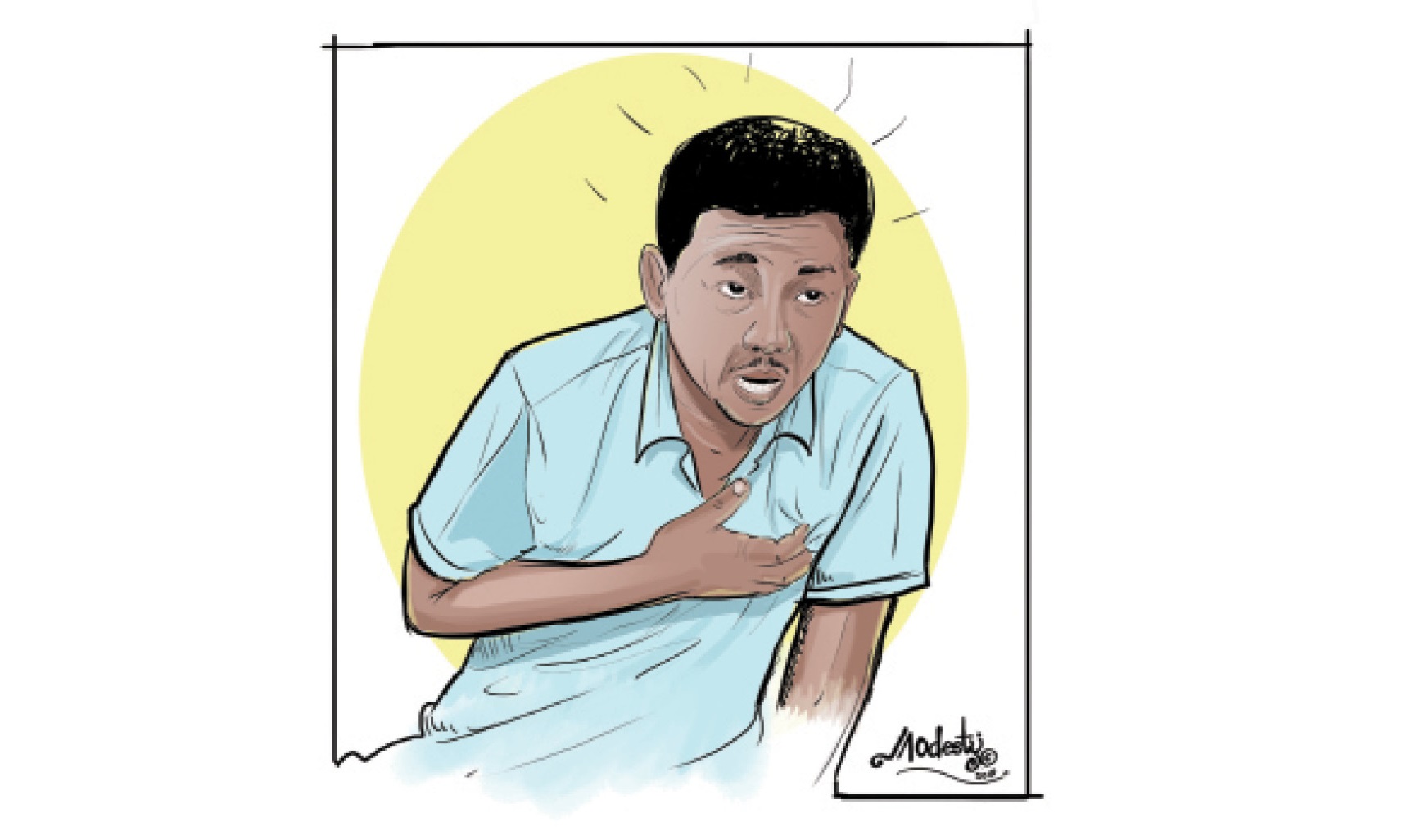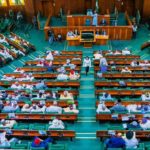Health authorities have recently been considering the interaction between coronavirus and sickle cell anaemia.
Recall, sickle cell is one of Nigeria’s leading childhood killer diseases with grave cardiopulmonary links.
- We lost 80 members over blood shortage, says Kano sickle cell association
- Dino Melaye debuts in sickle cell movie
By now, news of the pandemic is not news, as the world continually grapples with the novel coronavirus (COVID-19).
Worse still, the number of cases in Africa and Nigeria are large and exponentially rising, daily.
In truth, this virus has severe implications for people with pre-existing conditions who are disproportionately affected in any given population.
Even the US Center for Disease Control and Prevention (CDC) noted that “based on currently available information and clinical expertise, older adults and people of any age who have serious underlying medical conditions might be at higher risk for severe illness from COVID-19”.
As a hereditary haematological disorder, sickle cell disease (SCD) falls squarely in this category.
The most recent report from the Federal Minister of Health, Osagie Ehanire, presented at the Presidential Task Force (PTF) on COVID-19 briefing revealed that over 70% of fatalities recorded in Nigeria were as a result of underlying health conditions or comorbidities.
Health experts are now citing respiratory failure, a complication from covid-19, as a comorbidity in individuals with compromised immune systems.
A study found that on average, 15%-20% of infected patients will develop a severe respiratory illness.
These individuals then require ventilators for life support.
Sickle Cell Prevalence in Nigeria
Research has shown Nigeria to have the highest rate of sickle cell globally.
Forty million Nigerians also carry the sickle cell gene. Approximately 150,000 babies are born with the condition each year while 100,000 babies also die every year.
And, when you factor in the overburdened nature of our health system, the unfavourable health outcomes become apparent.
According to the National Health Institute (NHI), the childhood survival rate of children with sickle cell in Nigeria is a mere 10%.
Given Nigeria’s unique status as the highest sickle cell disease burdened country globally, it becomes apparent – the need to protect the millions of sickle cell patients, amid the ravaging impact and reality of COVID-19.
The Nigerian Demographic Health Surveys’ (NDHS) recent interest in the implications of sickle cell to Nigeria’s development also reinforces this need.
Is the health system and are health providers prepared?
This question necessitates an urgent response because patients with SCD often have underlying cardiopulmonary comorbidities.
These factors, in turn, predisposes them to poor outcomes if they become infected with COVID-19.
Sickle cell patients at higher risk of respiratory diseases
The Sickle Cell Foundation in Nigeria issued a statement which echoed the concerns for the at-risk group of sickle cell patients in the country.
They said: “as COVID-19 is a new illness, there is limited specific information for people living with sickle cell. Just as for persons with other comorbidities, people with sickle cell disorder are at greater risk of more severe manifestation of COVID-19. ”
The role of acute respiratory illnesses in sickle cell-related casualties is more than a calculated guess; scientific research supports it.
Further, science dictates that these individuals are predisposed to pneumonia, pulmonary vaso-occlusive disease and acute chest syndrome.
And with COVID-19 being likened to pneumonia and acute chest syndrome for being a respiratory illness, this raises even more concerns.
Acute chest syndrome is, in fact, the leading cause of mortality for children with sickle cell as well as being the second most common reason for hospitalisation.
In the same vein, the American Journal of Hematology which examined the pattern of presentation in sickle cell covid-19 patients observed the following: covid-19 triggered vaso-occlusive crisis (sickle cell crisis) and increased risks of developing acute chest syndrome.
This observation is similar to that of the first reported case of covid-19 in a patient with sickle cell. Researchers noted that a 21-year-old man in an unmentioned country met the criteria for acute chest syndrome, albeit moderate.
A global perspective
Currently, countries with significant populations of patients with SCD are studying the implications of COVID-19 for this vulnerable group.
At the same time, health authorities are issuing protocols for treating COVID-19 in patients with SCD.
Also important, administrations are offering targeted advice and guidelines to patients with SCDs to protect themselves during COVID-19.
The International COVID-19 Sickle Cell Disease Registry coordinates such studies.
This registry is a repository of pediatric and adult COVID-19 cases that are occurring across the world in patients living with sickle cell disease.
In the Caribbean, the Caribbean Public Health Agency (CPA), a regional coordinating body, called to the attention of member states the need to be vigilant and respond to the particular threat Covid 19 poses to people with NCDs, such as Persons with Sickle Cell Disease.
Adding that, “they may be at higher risk as Covid 19 affects the red blood cells’ ability to transport oxygen”.
In Africa, Ghana is leading the way through global partnerships with the Italian Fondazione per la Ricerca Farmacologica Gianni Benzi Onlus in the EU funded Arise project to study and develop new treatment protocols for SCD patients with COVID-19.
In Saudia Arabia, the Ministry of Health issued the COVID-19 in Sickle Cell Disease Rapid Response Guidelines Version 1.1 on April 12, 2020, with detailed clinical protocols to be followed.
In the US, with approximately 100,000 sickle cell patients, associations of haematologists and other public health agencies have issued updated and more aggressive protocols for treating acute and chronic management of COVID-19 in patients with sickle cell.
Biree Andemariam, MD, chief medical officer of the Sickle Cell Disease Association of America (SCDAA) and director of the New England Sickle Cell Institute at UConn Health, noted: “We are very concerned that COVID-19 infection could make patients with SCD [sickle cell disease] sicker than the average person, individuals with sickle cell disease are at much higher risk for severe COVID-19 infection and complications associated with infection”.
Furthermore, US agencies such as the Medical and Research Advisory Committee Sickle Cell Disease Association of America have issued detailed treatment advisories for providers in the US.
They also developed an adapted Manual for Providers of patients with SCD who contract COVID-19 in sub-Saharan Africa.
The Manual covers issues such as routine clinical care; treatment of complications; triangulation for COVID-19 and a step-by-step treatment guideline for the treatment of SCD patients with COVID-19.
The US Centers for Disease Control and Prevention (CDC), as well as UK Sickle Cell foundations, have issued special precautionary advisories directly to patients living with chronic diseases such as sickle cell.
The circular recommends that they stock up on clean water, essential medicines such as pain killers and other necessary supplies that can last for an extended time.
The advisory also bolsters the need for vigilance, practise of physical distancing and avoidance of crowds as much as possible.
Similarly, the UK government has adopted and recommended `Shielding’ as a core recommendation for sickle cell patients.
In public health, shielding is a measure to protect clinically extremely vulnerable patients by minimising the interaction between those who are clinically susceptible and others, including family members.
Recent UK government guidelines from the NHS in England strongly advises people with severe underlying health conditions including all patients with sickle cell and also thalassaemia (e.g. HbSS, HbS Beta thalassaemia, HbSC, HbSD, HbSO) to vehemently follow shielding measures to keep themselves safe.
Conversely, Nigeria’s response seems somewhat tentative. Let’s not forget that we have the highest SCD burden in the world.
While the National Primary Health Care Development Agency (NPHCDA), the Federal Ministry of Health and the Nigerian Center for Disease Control (NCDC) seemed to have been silent on the implications on sickle cell patients, the Sickle Cell Foundation Nigeria (SCFN) has issued a statement.
The statement, however, feels unsettled as the Foundation notes that: “they [people with sickle cell] need to take EXTRA PRECAUTION during these times.
Experts have advised that they observe SHIELDING in order to keep themselves safe”.
Call to action
Nigerian agencies spearheading the response to COVID-19, such as the Nigeria Centre for Disease Control should leverage from the actions of the countries above in developing definitive recommendations.
This pre-emptive approach would be relevant to the millions of individuals with sickle cell to protect themselves against COVID-19.
We also urge them to create comprehensive treatment guidelines for healthcare professionals charged with their care delivery.
Health authorities should also prioritise research/experimental protocols on persons with chronic illnesses, such as sickle cell disease patients, in preparation for the next pandemic or outbreak.
This recommendation is especially important because of the lack of data from previous outbreaks which overlooked the impact on a group with past pulmonary complications.
Take the 2002 SARS-CoV outbreak, for example, no scientific evidence or recordings of the effects to sickle cell patients were made; the same can be said of the H1N1 influenza outbreak.
In essence, research has been in short supply- this needs to change.
Zuwaira Yahaya Hashim wrote from Abuja Nigeria and can be reached on [email protected]




